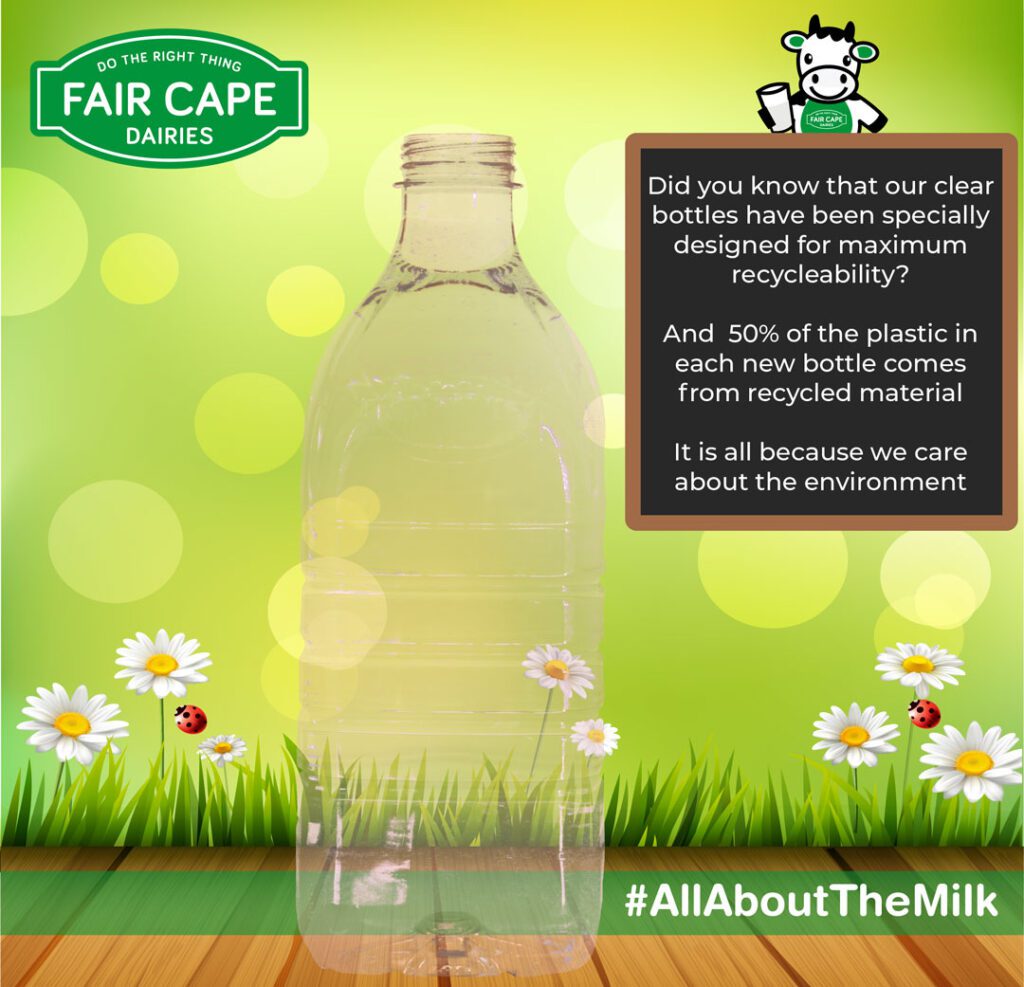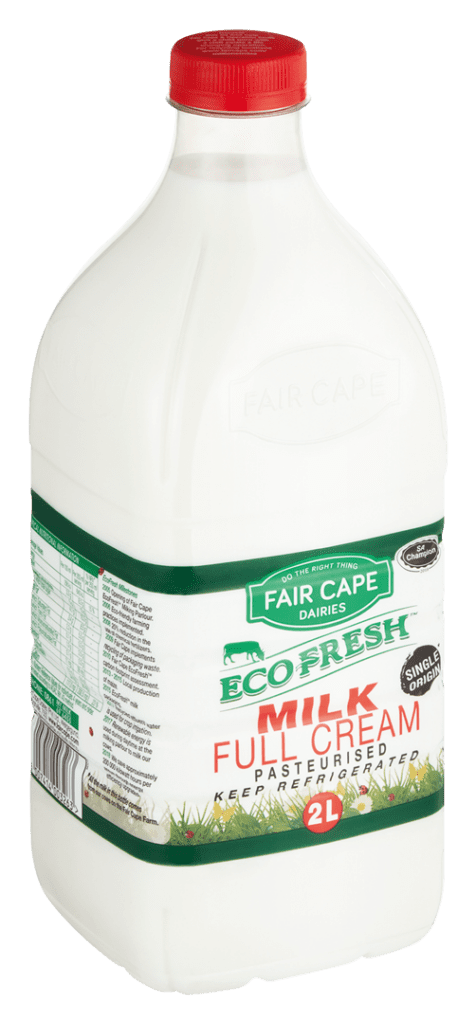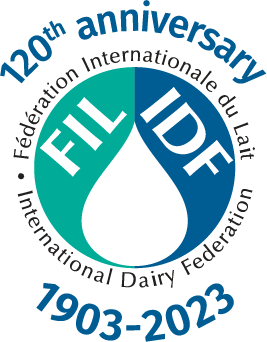Share this page
Dairy changes its milk bottle to support the local recycling market
Extended producer responsibility and contributing to the circular economy – It is only a milk bottle but a small change can make a big difference!



Alignment with SDGs
AUTHOR
Dr Colin Ohlhoff Fair Cape Dairies • South Africa
Introduction
Supporting the circular economy paradigm can be achieved by manufacturers simply by understanding the pathway of their products and packaging through the consumer chain. A recent example in the Western Cape Province of South Africa relates specifically to post consumer recylability of plastic PET milk bottles. Polyethylene terephthalate (PET) is a type of plastic used to manufacture bottles which are typically used for water, juices and carbonated soft drinks. PET is recognised as a recyclable material and can be produced in a variety of colours and forms.
Due to the surplus availability of colour (pigmented) PET in the local recycling market, recyclers were opting to rather accept clear (non-colour) PET. This meant that colour PET was being diverted to landfill sites. The issue was reported to the dairy manufacturer, Fair Cape Dairies, by its consumers. Consumers had experienced a reluctance by various recyclers to accept Fair Cape PET milk bottles which were uniquely pigmented white in colour.


Fair Cape Dairies has packaged its fresh milk into PET bottles since 2007, with the white colour bottle being iconically linked to the Brand. There had never been any previous issues around the recyclability of the bottle with PET widely accepted as a sustainable packaging solution.
The aim was to change the fresh milk packaging from opaque PET to clear PET so as to assist the local PET recycling market in the Western Cape Province of South Africa and minimize the opportunity for PET packaging to be diverted to landfill sites.
The initiative demonstrates that by making even the most subtle changes, producers have the ability to stimulate post-consumer recovery and recycling of their packaging materials.
Dr Colin Ohlhoff Tweet
History of success



The PET industry in South Africa has become significant in size with figures indicating total recycling of 2.15 billion PET plastic bottles in 2017 with a post-consumer recycling rate of about 65%. Fair Cape Dairies packages its fresh milk in PET bottles and therefore recognized its responsibility towards ensuring that consumers are readily able to recycle their packaging.
Moving the wheel
Discussion with recyclers and waste management organizations in the local industry to find out the extent of the issue around the conversion of opaque PET and the reasons why clear PET was preferred. It was through this engagement with the wider recycling industry that Fair Cape Dairies discovered that the PET market in the Western Cape Province had become saturated with colour PET.
Recyclers further indicated the technical complexities associated with converting colour/opaque PET into recycled material. This information suggested that clear PET was more readily recyclable and therefore preferred by local recyclers above the same material which had been pigmented.
Fair Cape Dairies then performed internal studies to assess the impact of changing from their white-colour PET bottle to a clear PET bottle. These studies included shelf-life and milk quality assessments.
The organization takes extended producer responsibility very seriously and acted accordingly to support the PET recycling industry. Since the change was implemented, positive feedback has been received from both recyclers and consumers.
The initiative benefits the greater PET recycling industry in South Africa and contributes towards the circular economy and waste reduction goals set out by local Government. Furthermore, the opportunity for producers to engage with waste management organizations and recyclers to improve their understanding of the flow of packaging materials, is recognised.
The initiative demonstrates that by making even the most subtle changes, producers have the ability to stimulate post-consumer recovery and recycling of their packaging materials.
New opportunities
The transition to a clear PET bottle, enabled the bottle manufacturer to incorporate recycled PET (rPET) into the final milk bottle composition. The new Fair Cape milk bottle is fully recyclable and is made using 50% recycled PET (rPET).
Recycled PET can be used to make a variety of new products. The polyester fibre produced through the thermal extrusion process has applications in clothing, home textiles, automobile parts and roof insulation. Future opportunities include the development of a milk bottle comprised entirely (100%) of rPET.
More information
on the PETCO awards can be watched here.






